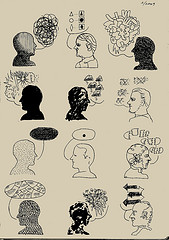Jan 12, 2013 Comments Off on Is That True?
Is That True?
I once worked for a CEO who would, when someone made a declarative statement such as, “Toothpaste is made with formaldehyde and detergent,” frequently ask, “Is that true?”
It always surprised me how disarmed I felt when he would ask me that question, for, frankly, it inevitably made me realize how infrequently I asked that question myself. In some cases, of course, the question would have been superfluous because the case in point was so commonsensical.
In other cases, admittedly, I was simply naive or embarrassingly uncritical.
Still, I have found that this question, when I pose it myself, almost inevitably makes people uncomfortable. This may be because, once posed, it causes people to reflect on their unconscious assumptions and unreflected credulity, and they are perhaps thereby a bit chagrined.
It could also be because, when someone asks you, “Is that true?,” they aren’t really asking you to back up your claims, they are, instead calling you either an idiot or a liar.
